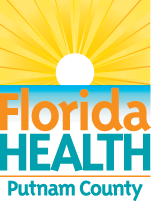It's a New Day in Public Health.
The Florida Department of Health works to protect, promote, and improve the health of all people in Florida through integrated state, county, and community efforts.
FLORIDA DEPARTMENT OF HEALTH IN PUTNAM ADVISES ON MENINGOCOCCAL DISEASE AND VACCINES IN FLORIDA
April 07, 2022
Contact:
Florida Department of Health in Putnam County
Catherine Crinnion
386-326-3241
Tallahassee, Fla. – The Florida Department of Health (FDOH) is responding to an outbreak of meningococcal disease in Florida. However, it can be prevented and treated. Getting vaccinated is the best way to protect against meningococcal disease.
Thus far, the number of cases identified in 2022 surpasses the 5-year average of meningococcal disease cases in Florida. FDOH epidemiologists are investigating each case as well as contacting people with potential or direct exposure to known cases to provide them with information and treatment options.
The following groups should consider vaccination with a meningococcal conjugate (MenACWY) vaccine during this outbreak:
- College and university students;
- Immunocompromised individuals;
- People living with HIV;
- Men who have sex with men;
- People in any groups listed above who received their MenACWY vaccine more than 5 years ago.
Find meningococcal vaccines, including the MenACWY vaccine, by contacting a health care provider, county health department, or pharmacy. FDOH Putnam offers meningococcal vaccines. For more information, visit the FDOH Putnam website, www.Putnam.floridahealth.gov/ or call 386-326-3241.
This is a serious disease caused by bacteria called Neisseria meningitidis. Fortunately, these bacteria are not as contagious as germs that cause the common cold or flu. People do not catch the bacteria through casual contact or by breathing air where someone with meningococcal disease has been. It requires close contact over a period of time, or direct contact such as kissing or sharing drinks.
Early symptoms of the disease include fever, headache, stiff neck, nausea, vomiting, light sensitivity, confusion, and rash. Anyone who has been exposed or develops symptoms should be evaluated by a health care provider immediately. This is a rare but potentially devastating disease.
For more information about meningococcal disease, please visit the Centers for Disease Control and Prevention website or the FDOH website.
EL DEPARTAMENTO DE SALUD DE FLORIDA EN PUTNAM ACONSEJA SOBRE LA ENFERMEDAD MENINGOCÓCICA Y LAS VACUNAS EN FLORIDA
Contacto:
EL DEPARTAMENTO DE SALUD DE FLORIDA EN PUTNAM
Catherine Crinnion, 386-326-3241
Tallahassee, Fla. – El Departamento de Salud de Florida (FDOH) está respondiendo a un brote de enfermedad meningocócica en Florida. Sin embargo, se puede prevenir y tratar. Vacunarse es la mejor manera de protegerse contra la enfermedad meningocócica.
Hasta ahora, la cantidad de casos identificados en 2022 supera el promedio de cinco años de casos de enfermedad meningocócica en Florida. Los epidemiólogos del FDOH están investigando cada caso y contactando a las personas con exposición potencial o directa a casos conocidos para brindarles con información y opciones de tratamiento.
Los siguientes grupos deben considerar la vacunación con una vacuna antimeningocócica conjugada (MenACWY) durante este brote:
- Estudiantes universitarios;
- Individuos inmunocomprometidos;
- Personas que viven con el VIH;
- Hombres que tienen sexo con hombres;
- Personas en cualquiera de los grupos enumerados anteriormente que recibieron su vacuna MenACWY hace más de cinco años.
Encuentre vacunas antimeningocócicas, incluyendo la vacuna MenACWY, comunicándose con un proveedor de servicios médicos, el departamento de salud del condado o una farmacia.
FDOH Putnam ofrece vacunas antimeningocócica. Para obtener más información, visite el web del FDOH Putnam, www.Putnam.floridahealth.gov/ o llame al 386-326-3241.
Esta es una enfermedad seria causada por la bacteria llamada Neisseria meningitidis. Afortunadamente, estas bacterias no son tan contagiosas como los gérmenes que causan el resfriado común o la gripe. Las personas no contraen los gérmenes a través del contacto casual o al respirar el aire donde ha estado alguien con la enfermedad meningocócica.
Requiere contacto cercano durante un período de tiempo o contacto directo, como besarse o compartir bebidas.
Los primeros síntomas de la enfermedad incluyen fiebre, dolor de cabeza, rigidez del cuello, náuseas, vómitos, sensibilidad a la luz, confusión y sarpullido. Cualquier persona que haya estado expuesta o desarrolle síntomas debe ser evaluado por un proveedor de servicios médicos de inmediato. Esta es una enfermedad rara pero potencialmente devastadora.
Para obtener más información sobre la enfermedad meningocócica, visite el sitio web de los Centros para el Control y Prevención de Enfermedades o el sitio web del FDOH.




Connect with DOH